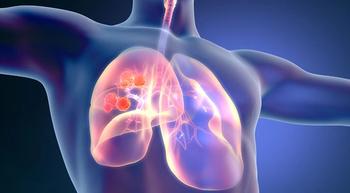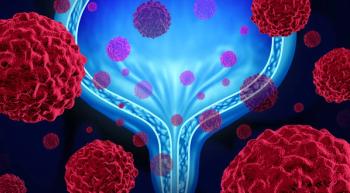
Why use one term over the other? It's not about exclusion, but rather inclusion and reaching all at risk for this disease-- which happens to be everyone.

Why use one term over the other? It's not about exclusion, but rather inclusion and reaching all at risk for this disease-- which happens to be everyone.

The FDA has approved subcutaneous use of Herceptin and Herceptin Hylecta in combination with chemotherapy for the treatment of select patients with HER2-positive early breast cancer.

A liquid biopsy test detected all of the guideline-recommended biomarkers in newly diagnosed patients with metastatic non-small cell lung cancer at a similar rate but faster than tissue genotyping.

The Oncologic Drugs Advisory Committee (ODAC) voted 8 to 5 recommending the FDA delay approval of selinexor for the treatment of patients with penta-refractory multiple myeloma until further trial data are available.

Television shows often portray breast cancer in unrealistic ways. As a survivor, it's my job to pay attention to the details and check them for accuracy.

Being a cancer survivor means that I'm living on borrowed time and struggling to find the balance.

The Food and Drug Administration granted a priority review to Revlimid (lenalidomide) plus Rituxan (rituximab) for the treatment of patients with previously treated follicular lymphoma and marginal zone lymphoma.

Outcomes associated with subcutaneous injections of Darzalex (daratumumab) appeared similar to IV administration in patients with relapsed or refractory myeloma, according to the phase 3 COLUMBA trial.

All of this fuss over frequent cancer prevention begs the question: To what end will I try to fight cancer and for how long?

After the loss of my husband to cancer, I am still learning to live free of cowardice— to live bravely for as long as I have left.

Of all the health care regulations coming out of the current administration, the recent drug rebate proposal presents a new opportunity to significantly lower out-of-pocket prescription drug costs for Medicare patients. But like most things in health care, there is more complexity to the administration’s proposed changes to pharmaceutical company rebates than initially meets the eye.

Researchers call for universal testing after study finds high prevalence of hepatitis B and hepatitis C infections.

CURE® spoke with a researcher from the American Cancer Society to examine temporal trends of obesity-related cancers in younger adults.

Art can help us understand our deepest feelings, helping us cope and reflecting the complexity of life after cancer.

The Food and Drug Administration approved Lonsurf (TAS-102; trifluridine/tipiracil) for adult patients with metastatic gastric or gastroesophageal junction (GEJ) adenocarcinoma.

Simple kindnesses can help to diffuse negative emotions that are associated with cancer diagnosis and treatment—and may even help to improve patients’ outcomes.

How can we finally rid ourselves of the emotional baggage that fear brings us and free up our minds to think about the good stuff?

From shark genomes to celebs and important updates, here is a quick overview of what is making headlines in the cancer space.

How physical therapy restored this cancer survivor's quality of life.

Using tumor DNA found in urine, researchers believe they have found a method to diagnose and monitor bladder cancer that outperforms standard tests.

Mandalas can help people with cancer and their caregivers find purpose.

After patients with non–muscle invasive bladder cancer fail to respond to treatment with BCG immunotherapy, Keytruda (pembrolizumab) may induce responses in these high-risk patients.

At 56, after two bouts of cancer, I realized something about my life.

The Food and Drug Administration granted a priority review to Tibsovo (ivosidenib) for the treatment of patients with newly diagnosed acute myeloid leukemia (AML) with an IDH1 mutation who are not eligible for standard therapy.

I am thrilled to be enjoying a respite from chemo but afraid to be happy. How can I process this scary new freedom?

The Food and Drug Administration granted a priority review to Keytruda (pembrolizumab) for the third-line treatment of patients with advanced small cell lung cancer (SCLC).

Vofatamab (B-701) may be safe and effective for patients with locally advanced or metastatic bladder cancer with an FGFR3 mutation who have relapsed after, or are refractory to, at least one prior line of chemotherapy, according to preliminary findings.

When and where to mention (or not mention) your ongoing cancer survivorship story?

The Food and Drug Administration granted a priority review to polatuzumab vedotin in combination with bendamustine plus Rituxan (rituximab) for the treatment of patients with relapsed or refractory diffuse large B-cell lymphoma (DLBCL).

In an effort to help others understand a breast cancer diagnosis, survivors may choose to use unique words. Sometimes, these words can be offensive.